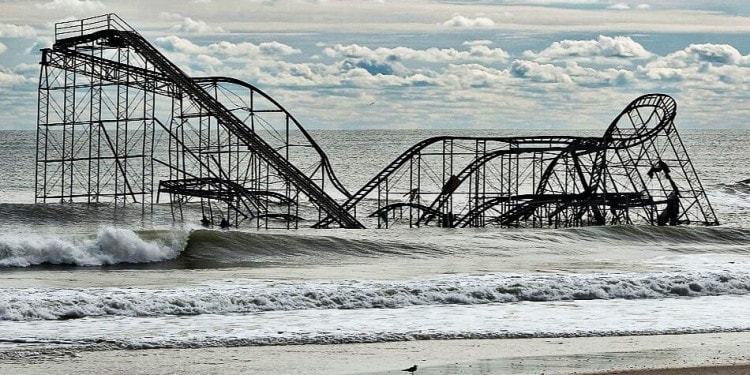During a morning discussion amongst a group of developed-country elders, the conversation turned beyond Afghanistan, nuclear proliferation, and COVID variants to what could be envisioned as the major challenges and vulnerabilities going forward for our children and their children. The discussion and further deliberations led to five points, none of which is surprising. They can be summed up in five paragraphs. You may disagree with, or want to revise, some or all, or have others to add. Here are the five problems briefly put:
1. Climate change, including (since climate change is already well underway) resulting mass migrations, competition for water and other natural resources, and other climate-induced conflicts.
2. The rise of China and the worldwide competition between democratic countries and authoritarian countries led by China, including with respect to international laws, norms, and institutions. The ability of democratic countries to succeed in this competition is affected by the current and ongoing erosion of democracy, including in the U.S.
3. Among the threats to liberal democracy virtually everywhere is increasing polarization owing to social media. In the U.S., the threats also include several U.S. Supreme Court decisions affecting the political and electoral system; the takeover of the Republican Party by Trumpism (and, with it, the “Big Lie” about the 2020 election and resulting efforts to suppress voting and to politicize the management of elections); and the need to address the political consequences of the increasing diversity of the U.S. population (reflected in the results of the 2020 census).
4. The deindustrialization of employment in the U.S. and in a number of other advanced developed countries (in manufacturing, transport, and other types of employment) owing to new technologies and trade; consequently, the need to develop new systems for recurring education during working life, to address inequality (which in the U.S. has been increasing for decades), and to provide better and more inclusive social protection generally.
5. Pandemics and other threats to health resulting from increased human-animal contacts (coupled with the effects of climate change on those interactions, often referred to as One Health), increased international travel, the relative lack of social cohesion and/or preparedness in nearly all countries, the lack of political cohesion and preparedness on the part of international institutions, and other factors.
It is a daunting list, to be sure. In these five respects, we cannot be proud of what we will be leaving to our descendants, their families, the rest of humanity, and other living beings on this planet.
As a species, however, we have faced formidable challenges in the past, in some ways of equal measure; but severe climate change presents an unparalleled challenge. We must hope that our descendants and the human population as a whole will have the intelligence, imagination, concern for others, and social, political, and economic cooperation to overcome these challenges.
EDITOR’S NOTE: The opinions expressed here by Impakter.com columnists are their own, not those of Impakter.com In the featured photo: The remnants of a roller coaster sits in the surf three days after Hurricane Sandy came ashore in Seaside Heights, New Jersey November 1, 2012. REUTERS/Steve Nesius/File Photo













